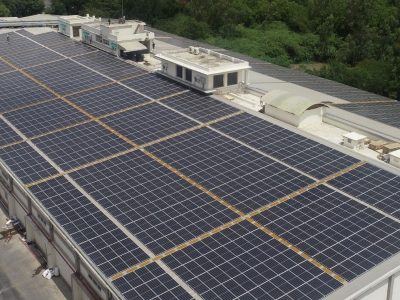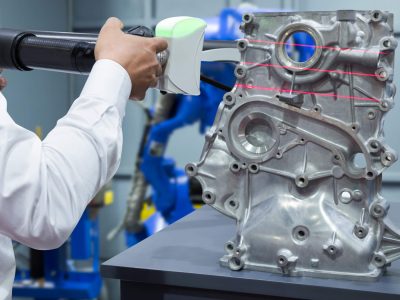The oil and gas sector in Canada is extremely dependent on cleantech. Through the application of technology and innovations to reduce carbon emissions, water usage, and land disturbance, it strikes a balance between the requirements of the world for both energy and environmental concerns.
Cleantech is a potent means of achieving Canada’s net-zero carbon objective. There will be a larger need for qualified professionals as new environmental solutions come to light to support this expanding business.
The Route to a Career Change
Transition Was Simple
The transferability of switching from the oil and gas industry to cleantech is quite high. As the necessary skills and experience are quite similar across most occupations, oil and gas personnel will have a simple time transitioning.
Undertaking investigation
You should examine and analyse your own abilities and expertise before changing your job to a different sector. You should also consider speaking with a career adviser and determine how working in the industry may be different. Cleantech Jobs characteristics to take into account include:
Experience and understanding
• Very competent at designing new technologies, processes, and equipments. Extremely solutions-oriented.
• Flexibility in one’s thinking.
• Boost applied math and subsurface geology knowledge.
• Increasing knowledge with regulatory structures and their effects on business.
• Broaden your understanding of the petroleum industry’s processes and procedures.
• Know how to create, test, market, and technology addiction at scale.
• Develop your company development knowledge and proposal writing skills.
• Expand your understanding of data science and analytics applications.
• Boost your communication abilities.
Benefits
• This industry’s pay scale is probably comparable to the average oil and gas compensation range.
• Opportunity to continue working in the oil and gas sector
• heavily depends on creativity Work together
• Companies are frequently new, tiny businesses.
• maintain a less formal organisational structure
• Focus on becoming entrepreneurial
• Work is iterative, and the approach probably will evolve.
• Accept constant criticism
• Relationship development Incorporate technology into daily tasks
The Employment Outlook for Cleantech
Upwards of $1 billion of the $1.4 billion invested annually by Canadian corporations in cleantech comes from the oil and gas sector, making Canada a global leader in this field.
As Canadian businesses and governments work to meet emissions-reduction objectives, the whole energy sector depends on cleantech to keep innovating and developing technology that will enhance sustainability. This mutually beneficial partnership benefits all parties involved.
Like everything else, cleantech development starts with an idea. Plans are developed, ideas are invested in, and they are shared. Additionally, being a young industry, cleantech is significantly dependent on the creativity and teamwork of many contributors and employers, including the oil and gas sector, academic institutions, financiers, and government.
• Throughout the innovation cycle, come up with viable cleantech solutions and give your knowledge.
• The oil and gas sector invests, tests, and uses technology.
• Contributes to the growth of cleantech innovations in field or lab settings.
• Plays a crucial role in expanding export markets, luring investment, and setting regulatory frameworks.
• Spend money towards the creation and adoption of clean technology.
A wide spectrum of engineering, technology, scientific, environmental, trades, and commercial expertise are needed to bring a concept to reality.
Would You Like to Work in the Cleantech Sector?
Good cleantech applications are invited:
• Appreciate a less formalized workplace where there is a culture of entrepreneurship.
• Possess a focus on finding answers and an interest in developing new methods, tools, and technology.
• Able to adjust to adjustments, criticism, and revisions.
• Understand how to envision your work, ask the proper questions, and take into account continuous feedback.
• In order to reach technical excellence, value perseverance and continual progress and engage in constant learning.
• Trust and cooperation are essential for solving challenges as a group.
• Possess effective communication abilities to motivate participation by telling key tales of accomplishments and setbacks.
• Engage in “out of the box” and imaginative thinking to demonstrate your dedication to and enthusiasm for enhancing the future.
• are interested in assisting the sector in finding ways to reduce emissions and manage water and land usage appropriately.
• Resilience, stress tolerance, and flexibility to operate in a changing environment should all be displayed.
• They already use technology in their daily work.
• possess the business sense to provide value for the company and the client.
Using a home office? You may remain there
Expanding human talents and capacities has been linked to economic growth for more than 50 years, according to economists. The covid-19 epidemic caused a significant change in the way we work as more firms realised how to maintain high levels of productivity with an off-site workforce.
According to the Future of Jobs Survey, businesses are already adjusting to the emerging distant and hybrid workplace. Working remotely is here to stay. In the US, one-third of respondents said they would want to work from home. A large increase in remote work is among the fast digitalizing work procedures that 84% of businesses plan to use.
The possibility exists, according to employers, for 44% of their staff to work remotely. Although many companies are taking measures to assist their staff in adapting, 78% of company executives anticipate some negative consequences for employee productivity.
For the vast majority of online white-collar workers, the occupations of tomorrow have already come. A third of all businesses anticipate that they will take action to address employee well-being issues and productivity problems by fostering a feeling of community, connectivity, including belonging among staff members through digital tools.
Conclusion
What progress we’ve made! Energy efficiency, biofuels and bio – based products, smart grid, sustainable sources, water and waste, and mass transit were included as the industries most expected to have a large market influence during the following ten years in the Global Cleantech 100 List from 2012. Don’t they appear to be a necessary component of our infrastructures now?







Comments